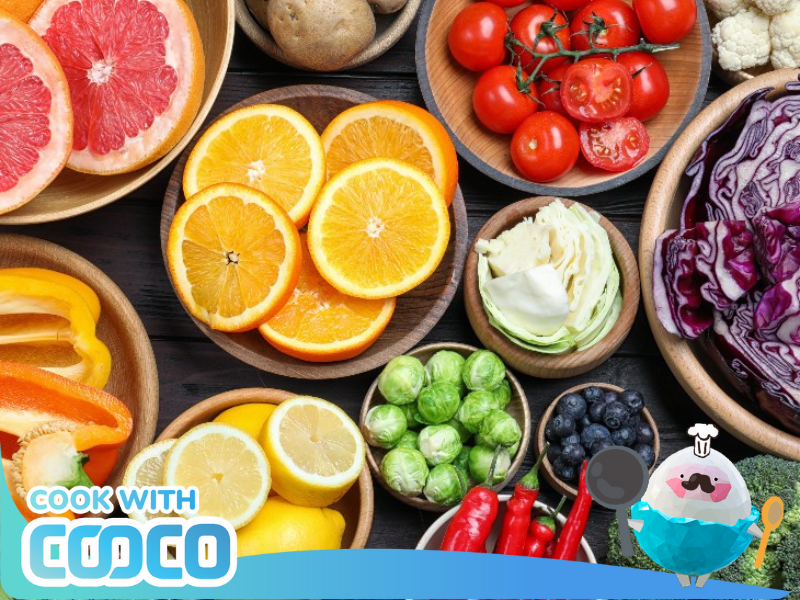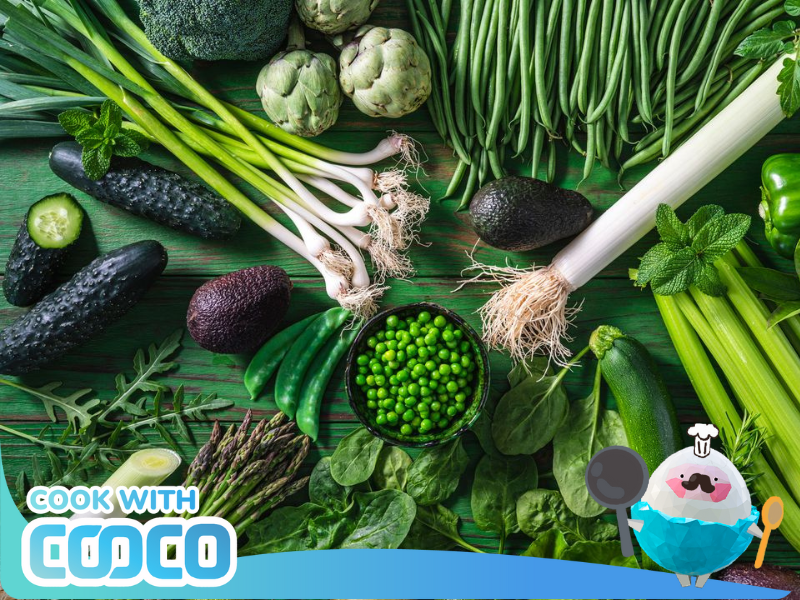THE VITAMIN CHEAT SHEET: 13 DIFFERENT VITAMINS AND THEIR BENEFITS
If you are hoping to improve your health, you may be trying to decipher the 13 essential vitamins. This comprehensive guide below will demystifies what functions they perform and how to easily incorporate them for improved overall well-being.
To keep your body functioning properly, and avoid the risk of serious diseases, including heart disease, cancer, and osteoporosis – combine a balanced diet with a variety of foods that contain these essential vitamins.

Vitamin | Why It’s Essential | Good Source |
A | Vitamin A plays an important role in growth and cell development, helping promote healthy teeth, bones, reproduction and soft tissue, including skin, hair, nails, gums, and glands. An adequate amounts of Vitamin A may prevent night blindness and lung cancer.
| Sweet potato, mango, pumpkin, grapefruit, spinach fortified dairy products, egg yolk, fish, beef, and liver. |
B1 | Vitamin B1 is important for maintaining a healthy metabolism, regulating nerve and heart function, and helping convert food into energy. | Whole grains, seeds, enriched bread, nutritional yeast, dried milk, egg, lean meat, and organ meat.
|
B2 | Vitamin B2 helps convert food into energy, supports healthy skin, hair, blood and brain. | Beef, chicken, shrimp, avocado, peanuts, tomato, spinach.
|
B3 | Vitamin B3 helps convert food into energy, promotes normal growth, and helps maintain healthy skin and nerves. At high doses, Vitamin B3 can also help lower bad cholesterol. | Avocado, potato, legumes, nuts, fortified bread and cereal, nutritional yeast, milk, egg, fish, and lean meats
|
B5 | Vitamin B5 helps metabolize food, normalizes blood sugar levels, and plays a role in the production of hormones and good cholesterol. | Mushrooms, avocado, potato, legumes, whole-grain cereal, milk, egg, and organ meat.
|
B6 | Vitamin B6 aids in the synthesis of red blood cells; maintains proper nerve and brain function; improves sleep, appetite and mood. | Green leafy vegetables, avocado, potato, banana, legumes, nuts, whole grains, chicken, fish, poultry, and meat.
|
B7 | Vitamin B7 helps convert food into energy, regulates hormone and cholesterol production, and supports healthy hair, skin, and nails.
| Legumes, nuts, whole grains, milk, egg yolk, pork, and even chocolate. |
B9 | Vitamin B9 controls tissue growth and cell function; vital for new cell creation and DNA synthesis. Since low levels are linked to birth defects, Vitamin B9 is crucial for pregnant women. | Green leafy vegetables, broccoli, asparagus, beets, avocado, oranges, wheat germ, fortified flour, and liver.
|
B12 | Vitamin B12 supports break down fatty acids and amino acids; helps form red blood cells, DNA; and maintains the central nervous system.
| Dairy, beef, pork egg, fish, poultry, meat, and organ meat.
|
C | Vitamin C strengthens blood vessel walls, promotes wound healing and iron absorption, helps prevent atherosclerosis, makes a new cells and improves immune system
| Cruciferous vegetables, fruit and juice, spinach, pepper, tomato, potato, melons, and berries.
|
| ||
| ||
D | Vitamin D aids calcium absorption; strengthens and helps build strong bones and teeth; maintains proper blood levels of calcium and phosphorus. | Fortified plant-based milk and dairy, egg yolk, fatty fish, and fish oil—or spending 15 minutes in sunshine three times per week.
|
E | Vitamin E acts as an antioxidant, protects fatty acids, maintains muscles and red blood cells. | Nuts, avocado, papaya, mango, seeds, tofu, vegetable oil, and egg.
|
K | Vitamin K is necessary for blood clotting and helps to regulate blood calcium | Green leafy and cruciferous vegetables, broccoli, egg, fish, beef, and liver. |
Credit:
Cheatdaydesign
Goop.com






